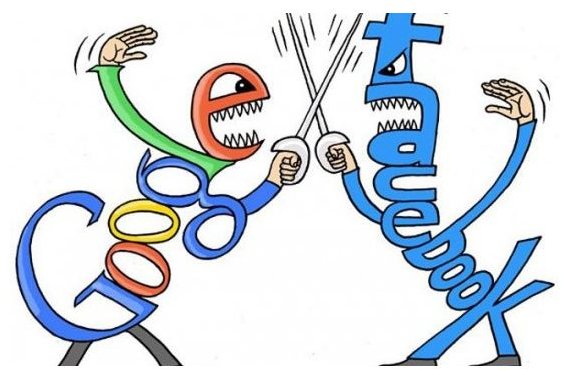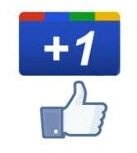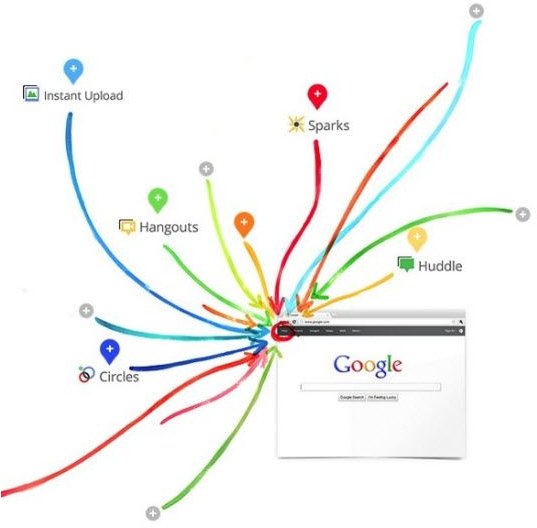Google+ vs Facebook: An Early Comparison
Making an Entrance
In the short time since Google+ has launched, and even before most eager would-be users have had a chance to get their hands on an invite, the Internet is already buzzing with talk about whether this will be the tool that starts Facebook on a MySpace-esque decline. The big questions at this point are what Google+ offers that Facebook doesn’t, and whether this will be enough to compel people to leave a space where they and their networks are already established.
Improved Interface and Features
Google+, at first glance, appears to have all the prerequisites of a successful social networking site: news feed (Google Stream); video and standard chat (Hangouts and Huddles); the ability to follow content of interest (Sparks); and supporting apps ready to go. All of this is standard fare for social networking sites, although Google has certainly presented it in an attractive and uncluttered interface.
Within these features, there are some areas where Google+ is clearly ahead of the game. The intuitive video chat in Hangouts provides a deeper level to social interaction - it really does feel like “hanging out.” Sparks use an algorithm to select content on a particular topic, which means that the experience across different topic areas is far more consistan than Facebook, where the user is at the whims of whoever owns the topic’s page.
On the other hand, Facebook is not taking news of Google+’s improved features lying down. Within a week of Plus launching, Facebook announced plans for an integrated group chat and video chat service, providing their own “hangout” experience in partnership with Skype (1). This has clearly been in the works at Facebook for some time, and it would be interesting to know if it was developed in response to the rumours of development in this area at Google or if Google simply stole Facebook’s thunder by launching their product first.
The Critical Difference - Privacy
However, where Google+ really sets itself aside is in the privacy and sharing options. The ease of adding users to Circles and then simply selecting which Circle you wish to post to from the options offered is profoundly different to the laborious process of working through Facebook’s privacy settings, building lists and then changing the viewing settings for each individual type of content that you share. Google+ even evaluates the type of content that you’re sharing and bases its default privacy setting on its perceived sensitivity.
This is a fundamentally different approach than Mark Zuckerberg’s often-quoted drive toward public sharing as the default. Google has done something very smart here: it has addressed the primary cause of dissatisfaction with Facebook. Privacy has been a major issue for the site ever since the Beacon fiasco, and with a constant stream of changes nudging users in the direction of default openness concern has grown into anger at what is seen as a lack of respect for personal information. When there was no viable alternative, user discontent went no further than noisy online complaints and a few deleted accounts. Now, there is an alternative - and a good one.

What Might Handicap Google+?
At the moment the invitation system (designed to avoid overload) is artificially throttling the number of people who can sign up, and it remains to be seen if this will prove to be as detrimental to early users as it was for Wave, which found hopeful collaboraters waiting weeks for their friends to join them (2). Certainly it feels rather empty in Google+ at the moment in comparison with established Facebook networks.
The primary challenge that Google+ faces, however, is whether it will be able to pull a critical mass of users away from Facebook. It certainly seems that Plus will be a haven for the users who retain a sense of unease about Facebook’s approach to content ownership and privacy. However, there are many Facebook users who have no particular concern with the status quo, and are unlikely to see a reason to move. In addition, if Zynga games such as Farmville remain tied to the Facebook platform there are many users who will not make the leap away from them, or at the least will retain an account in both spots.

Conclusion
Google+, like Facebook, is a deeper and more media-rich social networking experience than Twitter, and as such the two are not in direct competition. Diaspora, the open source project widely considered a possible alternative to Facebook, is still a long way away from prime time. It really is Facebook that Google+ is taking on, and at first glance it appears to have enough weapons in its armoury to mount a serious challenge. Whether it is able to develop the momentum to land the knockout blow, though, remains to be seen.
References
-
TechHaze. RIP Google Wave.
Image credits:
Google Plus icon: https://www.care4tech.com/google-plus/invite-your-facebook-friendsrelations-to-google-plus/1835/
Facebook vs. Google: https://www.shuvoimtiaz.com/
+1 and Like: https://debate.fm/likanpatra/facebook-vs-google-which-is-better
